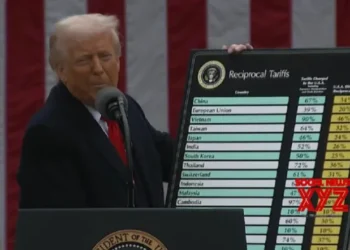Responding to the opposition’s objections to the Waqf (Amendment) Bill, Bihar BJP President Dilip Jaiswal on Thursday criticised the Congress and its alliance partners, accusing them of being entangled in the politics of appeasement.
The Bill, which seeks to streamline the registration process of Waqf properties through a central portal, among other things, was presented in the Lok Sabha on Thursday.
Defending the Bill, Jaiswal said, “It is essential to resolve the disputes and problems related to the Waqf Board. The Bill is not only necessary for addressing the present issues, but is also crucial for the future. It will bring much-needed transparency to the management of Waqf properties.”
He also criticised the opposition for opposing the Bill, accusing them of trying to instill fear among the minority communities, particularly the Muslims.
“It is clear that the amendments proposed in the Bill are not anti-Muslim. The opposition is spreading confusion and misinformation about the Bill. I believe that it is in the national interest and crucial for the unity and integrity of the country,” Jaiswal said.
The BJP leader positioned the opposition’s resistance to the Bill as detrimental to national unity, suggesting that supporting the Bill is aligned with safeguarding the country’s interests.
Samrat Choudhary, the Deputy Chief Minister of Bihar, also criticised the Congress and other opposition parties for opposing the Waqf Amendment Bill, accusing them of engaging in vote bank politics and appeasement policy.
Choudhary also expressed his gratitude to Chief Minister Nitish Kumar and his party JD(U) for supporting the Bill.
“We welcome JD(U)’s stance that the Bill is not anti-Muslim but is intended to bring legal accountability to an institution that has operated with considerable autonomy,” he said.
“The proposed amendments to the Waqf Act are based on the Sachar Committee report. The report said the income of the Waqf Board from all its assets is only Rs 163 crore. If Waqf assets were properly maintained, it would have earned an annual income of Rs 12,000 crore. The Waqf Act was amended in 2013 also,” Chaudhary said.
By linking the current amendments to the Sachar Committee’s recommendations and past legislative actions, Choudhary reinforced the argument that the Bill is part of an ongoing effort to improve the management and transparency of Waqf properties, rather than a politically motivated or anti-Muslim move.























